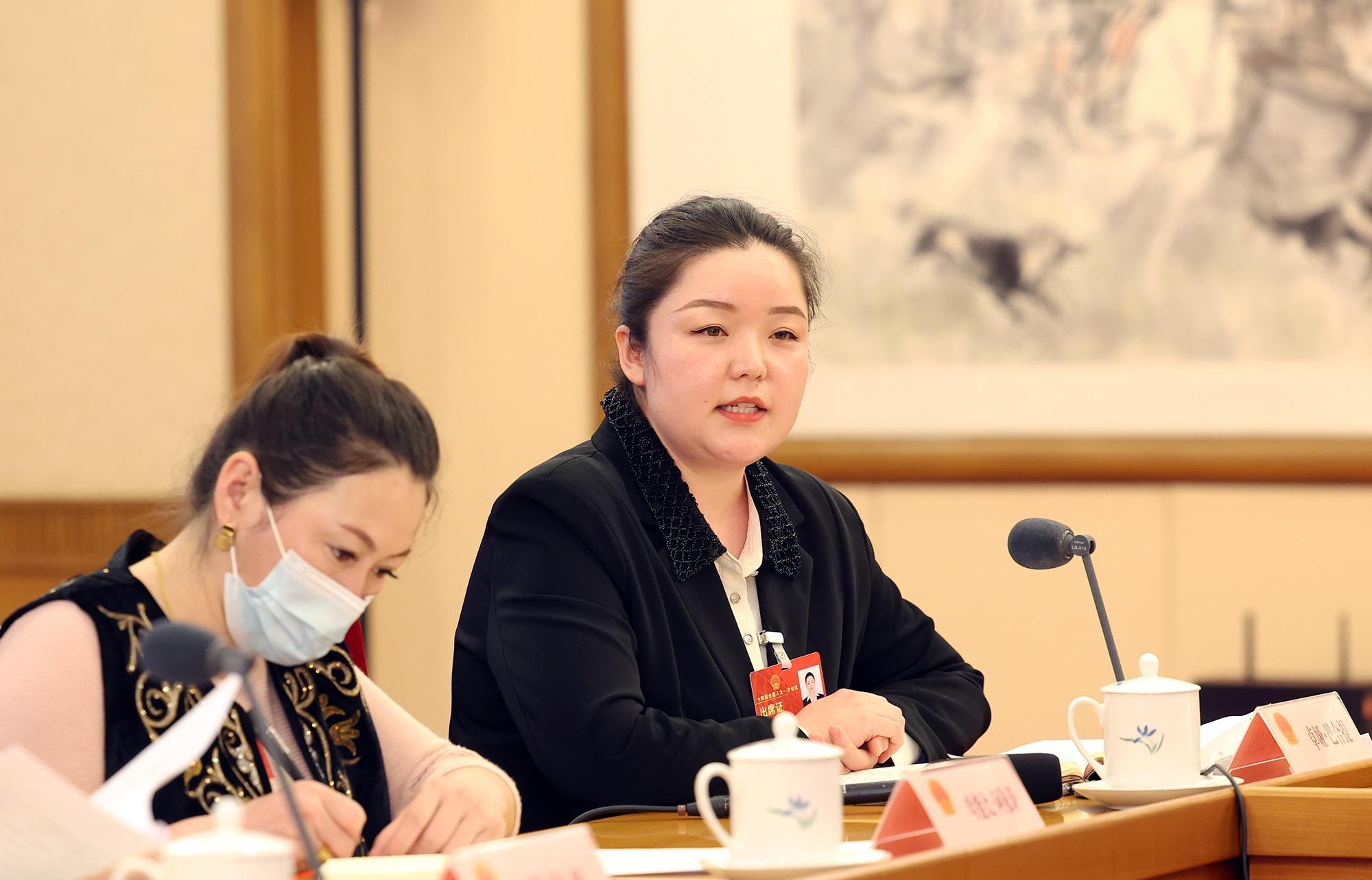 Zoya Bahit speaks during a panel discussion of the first session of the 14th National People's Congress 2023. (PROVIDED TO CHINA DAILY)
Zoya Bahit speaks during a panel discussion of the first session of the 14th National People's Congress 2023. (PROVIDED TO CHINA DAILY)
Zoya Bahit, an archaeologist from the Xinjiang Uygur autonomous region who is a deputy to the 14th National People's Congress, said she has developed an emotional attachment to relics and will spend a lifetime exploring the mysteries behind them.
Zoya said she was thrilled the first time she excavated ancient stone tools at the Tongtian Cave site in Xinjiang in 2016, and that she felt like she was "witnessing and experiencing history".
"Ancient humans may have used the stone knives to cut the skin off animals to make clothes and to eat meat," said the archaeologist, who worked with a shovel and brush at the site for three months as an intern while studying for her master's degree at Xinjiang University in Urumqi, the regional capital. "Through gradual excavation, we discovered traces of ancient life. It's so exciting."
Tongtian, located in Jeminay county of Altay prefecture in Xinjiang, is a granite cave site where it is believed humans lived from the Paleolithic period 50,000 years ago to the Shang Dynasty (c.16th to 11th century BC).
READ MORE: China to restore frescoes of grassland grottoes
It was later designated as a key State cultural relics site.
Zoya, who was 27 years old when she interned at the site, said the experience further ignited her passion for archaeology.
In 2021, she participated in the construction of Altay Museum, using her knowledge to ensure the protection of the artifacts, and arranging and writing introductions for exhibits.
She inspires visitors' interest in archaeology with her commentary as they peruse the displays and promotes the use of digital tools so that tourists can interact with the relics.
The museum has 544 relics in a 2,300-square-meter exhibition area, including a gold-leaf horse with wings believed to be a decoration sown on clothes from the Han Dynasty (206 BC-220 AD) and 19 grassland stone men memorializing the dead dating as far back as 4,000 years ago.
In the exhibition area, the production process, origin and function of the relics are shown in animated displays. Tourists can play a trivia game testing their basic knowledge of archaeology, and they can use virtual shovels to dig at the Tongtian Cave site depicted on a screen.
"We expect to bring the relics in the display cases to life, allowing them to speak," Zoya said, adding that the digital programs are very popular among young visitors. The museum saw 130,000 visits last year.
While offering commentary at exhibitions, she likes to share the story "When Millet Meets Wheat".Carbonized wheat, barley and millet remains dating back over 5,200 years were discovered at Tongtian. The findings were the oldest wheat and barley samples found in China, and the oldest millet samples found in Xinjiang.
Archaeologists believe that millet was transported to Xinjiang from inland China. Wheat and barley were brought from the West to China around 5,000 years ago.
The findings indicate that people living in the area around the cave had exchanges with people from inland China and the West.
ALSO READ: Documentary traces the colorful history of Xinjiang
Zoya included the story as part of a project she has initiated to launch an archaeological course for primary and middle school students in Altay, using software to educate them about the history and culture of their hometowns, and to teach them that food should be cherished as it is not easy to come by.
During this year's two sessions, the annual gatherings of the NPC and the National Committee of the Chinese People's Political Consultative Conference, she has proposed making more digital copies of rock paintings and other stone artifacts that can be used for scientific research and exhibitions.
"As the natural erosion of such relics is an irreversible process, we have to race against time to record their current conditions, as their information will play a key role in future studies," she said.
Zoya also suggested using more digital tools to preserve immovable relics in nature. Altay has 651 such relics, 75 percent of which are ancient tombs.
Contact the writers at chenmeiling@chinadaily.com.cn


